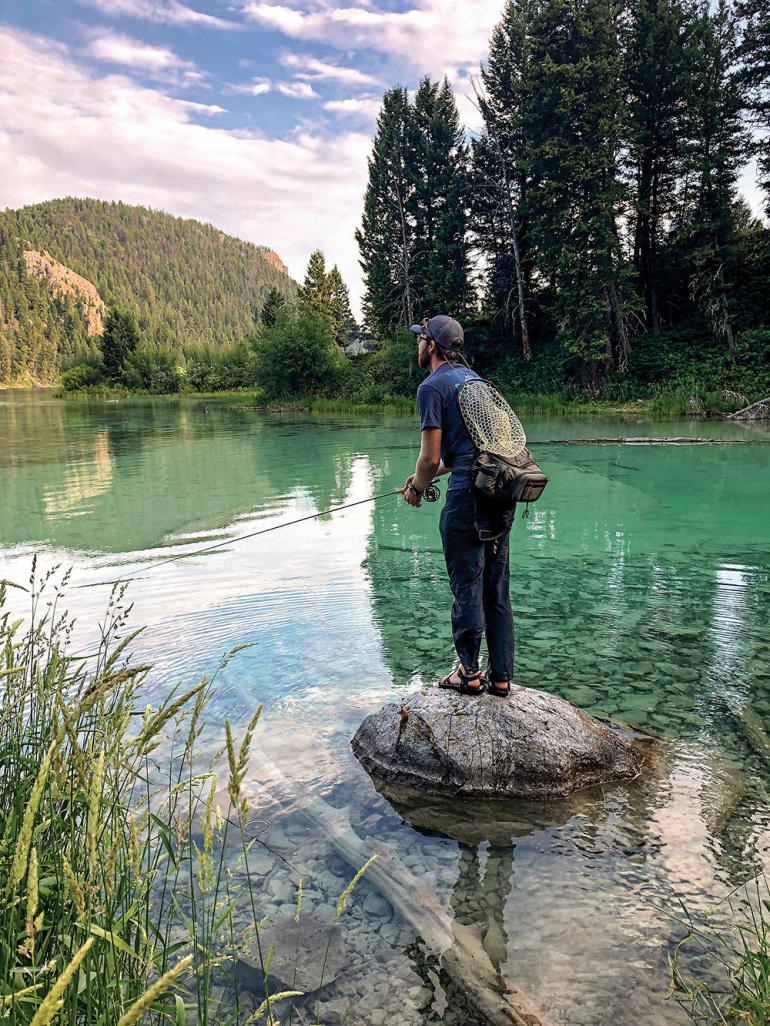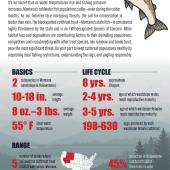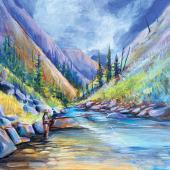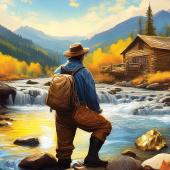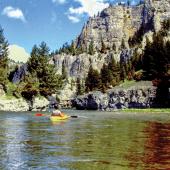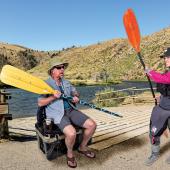Chins Up
Enduring adversity on Cliff Lake.
We launched our kayaks onto the calm surface of Cliff Lake on an early May morning. The sun was just cresting the forested horizon surrounding the lake, and cold water slightly deflated the tubes of our kayaks. But the morning light brought hope, and James and I started paddling with high expectations of catching spawning rainbows.
Our original plan was to fish the lake as we traveled across it, but little did we know, paddling three miles takes a lot of time. Cliff is one of the many lakes sitting in a fault line south of the Gravelly Range, making it long, narrow, and almost subterranean, as it’s tucked a couple hundred vertical feet below the surrounding terrain. But the lake’s unique beauty was not on our minds as we grunted toward the spring creek at its opposite end. Our thoughts were filled with the big fish we were sure to catch.
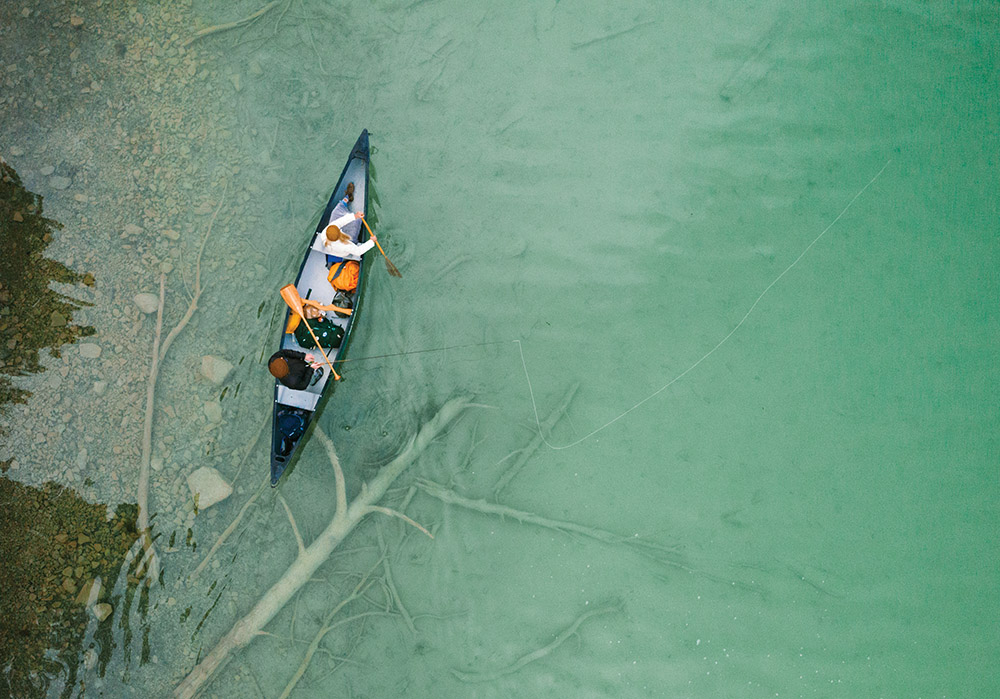
The grassy banks of the inlet were lush and green; it seemed guaranteed to hold large trout. Hopping out of my kayak, I watched a group of small fish swim up the creek. I grinned at James in excitement. We started with nymphs, but had no luck. Eventually, James pulled out a nice rainbow. It seemed to be the only decent-sized fish in the area.
We continued upstream until the creek split into two small forks. I tied on an egg, cast it into a tiny pool, and pulled out a fish the size of my pinky. James was impressed I had even felt it eat the fly. He told me it was the smallest fish he’d ever seen somebody catch with a fly rod. It was my only fish of the day.
Heading back to the kayaks, James stomped carelessly through the creek. He jokingly made a final cast and pulled out another rainbow. On closer examination, we noticed it was the same size and color as his first one. We determined it in fact was the first one—the only fish dumb enough to eat our flies. We then noticed hikers coming toward us on a walking trail. This wasn’t as remote of spot as we thought after all. It turned out that all of our miles paddling weren’t even necessary. Accessing this spot only required a short walk. Our frustration turned to laughter when we started paddling back. Then came the headwind.
The annoyance was real this time. Slogging back to the truck after disappointing fishing was difficult enough. Now we have to battle it out with the elements? A few times both of us stopped paddling, completely defeated. But it was in these still moments that I started to observe the lake. For the first time all day I recognized the beauty of place and companionship. My frustration began to diminish and I started to enjoy myself. James and I started laughing again, though a little less than before.
It occurred to me that the possibility of things not going to plan is what actually draws me to outings like this. The chance that an adventure might not meet my expectations adds an element of excitement—that’s why we call it an adventure, right? And no matter what happens, the day isn’t going to be a failure. Frustration can be warranted, but for the most part, when things go amok, it’s pretty funny. By the time we got to the truck, the last vestiges of negativity had vanished. I wished we’d stayed out on the lake longer.
Whenever I leave a wild place that’s granted me a spectrum of emotions, a sense of melancholy sets in. It feels like I’m leaving home. Fish or no fish, there is something sacred about being with a good friend in the middle of nowhere, casting your lines out on the water, reaching out into another world to make a connection.

